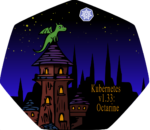
The Cloud Native Computing Foundation announced it has officially accepted KUDO into the organization as a sandbox project. KUDO, which stands for Kubernetes Universal Declarative Operator, is an open-source project developed by cloud native platform and app management company D2iQ. According to the company, it has been used across the world to simplify the development of Kubernetes operators.
“When we started KUDO, building operators was a major undertaking, typically requiring thousands of lines of Go, a significant understanding of Kubernetes internals, and domain specific knowledge of the application itself. For many organizations, this was a huge burden in terms of resources and complexity, making it difficult to take advantage of the power of the operator pattern,” Matt Jarvis, senior director of the community and open source program office at D2iQ, wrote in a post.
KUDO makes it easier to build Kubernetes Operators by providing a set of pre-built operators designed to be used out of the box and easily customized.
KUDO can help app admins run apps on Kubernetes without having to learn about Kubernetes internals, developers who want to write operators without writing thousands of lines of code, and Kubernetes clusters that have many different operators to be managed.
The news comes after CNCF scaled its sandbox approval process in an effort to meet the growing demand for new projects.
“The CNCF Sandbox has long played an important role enabling neutral collaboration and experimental cloud native projects to thrive, but with record demand by projects to join the CNCF community, we agreed that the process could be refined in new ways to speed the review and approval process,” said Chris Aniszczyk, CTO of the Cloud Native Computing Foundation. “I’m thrilled that the CNCF TOC has put in place a great new process that simplifies the barrier to entry for worthy projects and increases innovation, which recently led to 11 new Sandbox projects being accepted.”
As a CNCF project, KUBO will grow under governance models, driving participation, and a user base for developing operators.
“This was the culmination of two years of hard work from the team and is a fantastic step forward for the project. Since it started as a tiny skunkworks project at the D2iQ office we’ve seen adoption from users and developers across the world, and the project has matured into an awesome toolbox for simplifying the development of Kubernetes operators,” Jarvis wrote.








